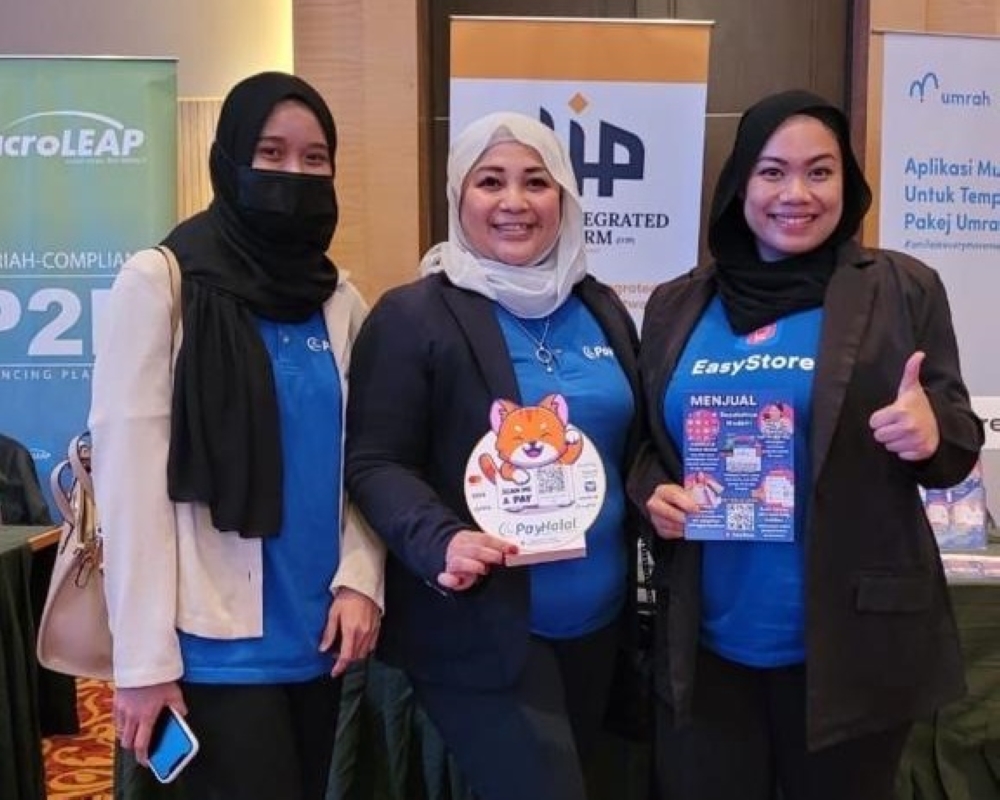KUALA LUMPUR, Feb 15 — In today’s digital world, many industries have leveraged customer data to create a personalised customer experience and keep their competitive edge.
Such an approach allows service providers to redefine customer expectations and deliver targeted services tailored based on users’ data.
In Malaysia, financial services platform PayHalal has embarked on this major trend to offer customisation and embedded Islamic finance to customers.
According to the company’s managing chief technology innovation officer Pat Salam Thevarajah, hyper-personalisation is a major trend in the financial services industry that provides customisation.
“Incumbent payment processor gateways may be behind the curve as they struggle to keep up with this fast-evolving landscape.
He said said that hyper-personalisation in banking is a strategy to customise baking products and services to meet customers’ specific needs.
“It can be used across different industries from financial services to retail.
“By leveraging advanced data analytics, companies are able to develop marketing campaigns and other interactions that better meet customers' expectations.”
Elaborating on the mechanism, Pat Salam said once PayHalal has identified and segmented the transaction data, it starts to design a hyper-personalised payment user experience.
“This involves leveraging the data collected to create tailored payment transaction contracts that are unique to each type of trade transaction.
“For example, you can use predictive models such as machine learning algorithms to dynamically adjust offers based on past behaviours, contract structures, preferences or other factors.”
He said the goal of this concept is to deliver greater relevance and value over time by understanding non-compliance transactions and providing insights on mitigating secure network communication transactions.
Pat Salam, however, noted that once service providers have identified the right data to collect, it is important to ensure the system is able to clean and structure the data in order to make it simpler and more useful.
“To do that, PayHalal offers a range of features that can help with this process, such as advanced analytics tools that allow you to gain insights into customer behaviour patterns or predictive models that help identify potential opportunities for personalisation.
“With these tools in place, you will be well on your way towards creating meaningful hyper-personalised experiences for your customers.”
Speaking about the benefits of digital tools, Pat Salam said analytics offer clearer insights that produce smart, more efficient and effective customer engagement that also help shorten the sales cycle without detracting from Shariah compliance, providing added customer surety.
“Hyper-personalisation is the next step in the evolution of merchants’ experience.
“Merchants can leverage PayHalal’s hyper-personalisation and create a custom framework that enables them to adjust their strategy based on the latest data insights from their audiences.”

Improving the financial infrastructure
Pat Salam said financial infrastructure is an essential component of a modern digital economy, but it needs to keep up with the rapid pace of technological advancement.
“PayHalal is one company that is committed to futureproofing its key digital infrastructures by taking several key steps to build resilience into our systems, create inclusivity and adapt quickly to new technologies and operating models.
“We will also leverage existing platforms for greater innovation and adopt financial services while developing data-security policies that support responsible usage.”
He also noted that the firm is committed to working with central banks, regulators and industry players to develop an efficient and secure real-time payment infrastructure in line with Bank Negara’s plan.
“This includes developing a standardised application programming interface framework for facilitating interoperability among real-time payment systems across Asean countries and exploring new methods such as using multiple central bank digital currencies.
“PayHalal will also focus on connecting the real-time payment system with other similar systems through QR-based linkages, expanding use cases for peer-to-peer fund transfers and creating a proof of concept project under Project Nexus that aims at creating a global network connecting all real-time payment systems.”

Supporting SMEs
Moving forward, Pat Salam said they are forging international alliances with global partners in order to extend relationships with current local small and medium enterprises (SMEs) while also broadening their merchant base.
“The company is looking not only to strengthen physical store fronts but also e-commerce operations by ensuring suppliers' access to real-time payments in multiple currencies.
“Many of these “last mile” merchants are SMEs who are experiencing some of the most acute inflationary pressures ― making PayHalal a critical service provider for them at this difficult time,” said Pat Salam in reference to the current economic downturns.
“By supporting SMEs through comprehensive financial solutions that span everything from payment processing to supply chain financing, we can not only ensure greater stability in domestic and international trade but promote a more inclusive digital economy too ― one that will create long-term growth and prosperity for all involved.”
Surf over here for more information about PayHalal.






















